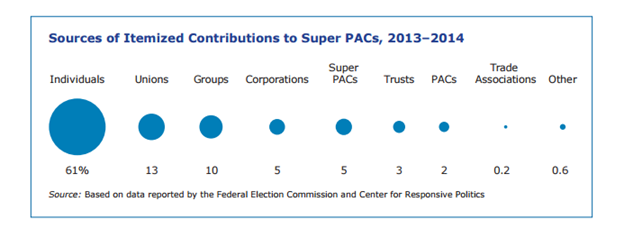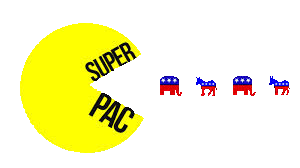Super PACs are simply groups of like-minded citizens pooling their resources to support or oppose political candidates independently of those candidates’ campaigns. The product of a unanimous U.S. Court of Appeals decision in SpeechNow.org v. Federal Election Commission, super PACs have ensured that Americans do not lose their First Amendment rights when they join together in groups.
Super PACs are not subject to contribution limits and can accept donations from corporations and unions. They enjoy this freedom because super PACs do not give money to candidates or parties, and do not coordinate their spending with these entities. However, super PACs are still heavily regulated by campaign finance laws. Just like candidates and political parties, super PACs must report detailed information about their donors who contribute over $200. They must also register with the Federal Election Commission and report all of their donations and spending on a schedule set forth by the government. This information is then published online in a searchable database available to anyone.
In practice, super PACs, which are primarily funded by individuals, have challenged the monopoly on political speech held by powerful politicians and big media corporations. Not since the 1960s have groups like super PACs existed that allow any group of citizens the unfettered opportunity to offer their views in competition with elite institutions. This freedom is something to celebrate.














